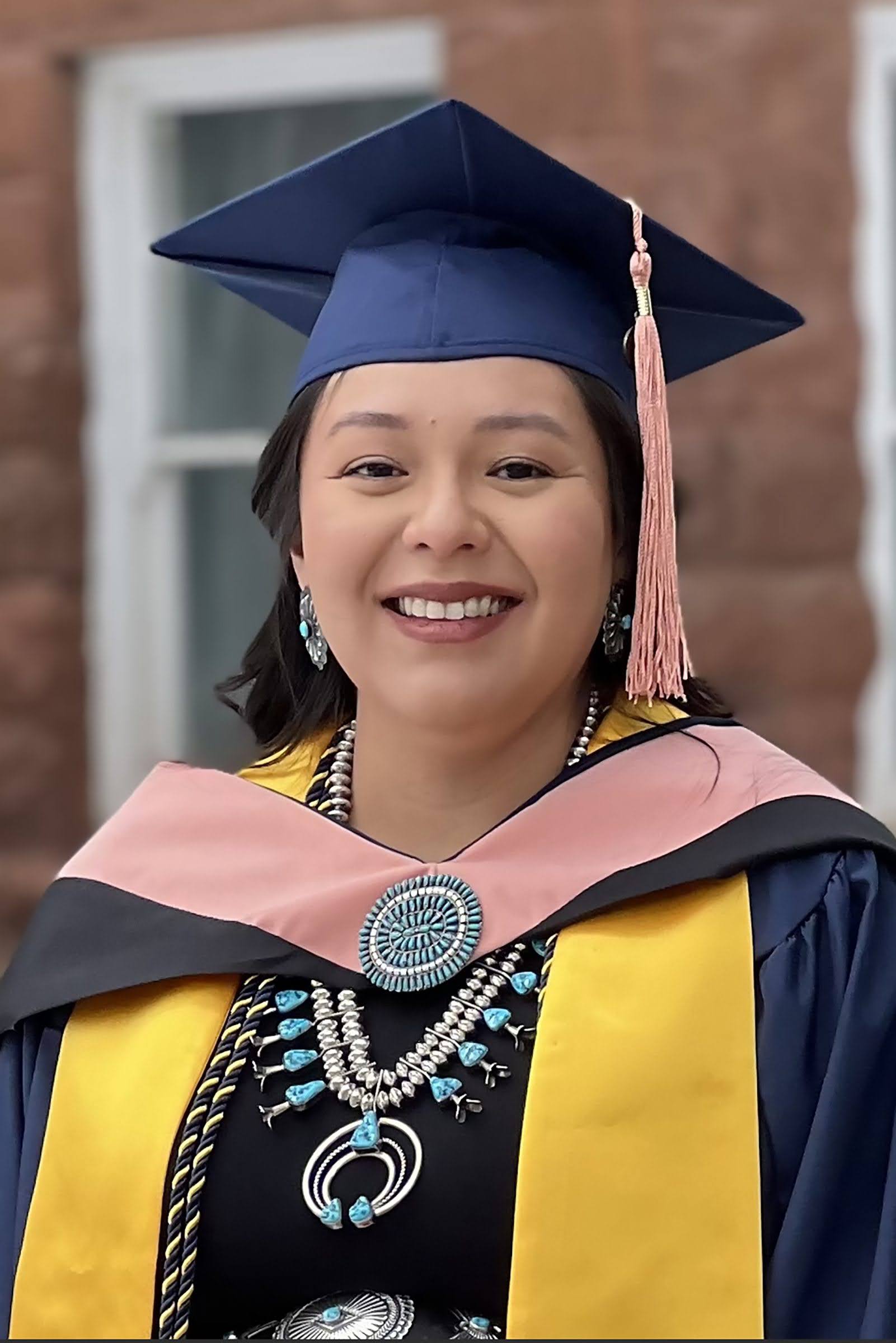Student Spotlight: Jayme Biakeddy

COVID-19 was life-altering for most people, but for Jayme Biakeddy, the pandemic changed the course of her career.
During the pandemic, she worked with the Johns Hopkins University Center for American Indian Health alongside multiple public health professionals distributing wellness packages and assisting with vaccine distribution to local community members across the Navajo reservation. She also distributed water throughout various communities that had limited access to water and created hand-washing stations.
“I learned to appreciate the community for demonstrating their resilience throughout such a challenging period,” Biakeddy said. “I never really understood the type of work public health professionals did and provided until I got into the role of working on various infectious disease studies.”
She found her passion in engaging with the community, conducting home visits, and interacting with community members through those projects.
“Getting that firsthand experience of understanding those social determinants of health that impact the Navajo community specifically, because that’s the people that I’ve interacted with, such as them having limited transportation, not having access to running water, food supplies and just basic necessities that they utilize in their everyday lives.”
Biakeddy said that the team she worked with in Fort Defiance was the driving force for her going back to school to earn her Master of Public Health. She began by taking advantage of the educational opportunity at Johns Hopkins University, Bloomberg School of Public Health prior to joining Northern Arizona University.
Her current project focuses on community health representative integration into Indian Health Service and 638 facilities, which are Compact Health Centers operated by Tribes or Tribal organizations and Urban Indian Health Centers, which are outpatient health care programs and facilities that specialize in caring for American Indians and Alaska natives, according to the Health Resources and Services Administration.
During her work on the project, she had the opportunity to work in partnership with the Center for Health Equity Research at NAU, the Arizona Advisory Council on Indian Health Care, and eight tribally operated CHR programs across Arizona.
“The purpose of this project was to build the capacity of tribally employed CHRs and the tribal healthcare systems to better address the social determinants of health and build community resilience,” Biakeddy said.
After graduating from NAU with her Master of Public Health degree this May, Biakeddy said she hopes to continue working with Native American communities and programs to elevate the health of Native people and bring awareness to the health inequities among underserved populations.
“I am also passionate about furthering my research experiences through community-based participatory interventions and programs to engage with Native American communities to build long-standing trust relationships and empower collaboration between communities and researchers to promote capacity building and co-learning,” she said.
She said she also had a lot of support from her family financially and emotionally.
“Overall, they helped me throughout undergrad all the way to grad school now and the extra endeavors that I did along my journey,” she said. “My family has always been very supportive and helpful.”
Now that she is graduating, she wants to encourage future public health professionals who would like to pursue their education further to be resilient.
“Remember to demonstrate and harness your resilience by acquiring as much knowledge as possible, discover a support system, and prayer,” Biakeddy said. “These qualities will serve as guiding tools to not only help with success but also to help the community as well.”